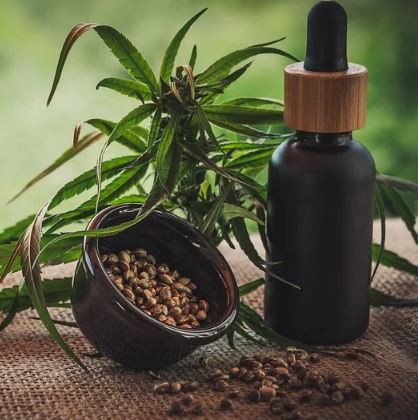Recently, there has been a lot of controversy surrounding cannabis. While some American states have decided to legalize its use in the image of Colorado, many governments have legislation that remains very suspicious and restrictive of this substance. However, CBD has recently. But how is this product different?

CBD
Unlike THC (tetrahydrocannabinol) — the psychoactive substance in cannabis — CBD does not cause dependence or psychotropic effects such as drowsiness, decreased reflexes or euphoria. In fact, it is this characteristic that makes it suitable for use in a legal context. Its health consequences are obviously less powerful than those caused by marijuana, but cannabidiol still has a calming effect.
In fact, CBD has seen its popularity increase throughout Europe recently, before it arrived in France a few weeks ago. Since its arrival on French soil — which has not been exempt from some passages that have been published in the press — some people have been riding the wave of fashion. Among the cafes and specialty shops, there are many by-products that contain cannabidiol. These include herbal and other teas, dried flowers, as well as massage oils and CBD oils like CBD Pure.
Are CBD-based products legal?
In France, the possession — and even more so the use — of cannabis is severely punished by law. However, this is not the case for cannabidiol, which is a derivative. Why not? In fact, CBD has a THC level below the 0.2% permitted by law, which makes it legal for consumption, under certain conditions. Its rapid spread on the European continent has not allowed French legislation to anticipate its arrival, which has earned it the nickname “legal cannabis”.
Although CBD is not an intoxicating drug, its use must be restricted, as it is a derivative of cannabis. However, this is not the case at present on the consumer side. On the other hand, we must beware of sellers who market these products as therapeutic remedies or under the name of painkillers, because that is strictly forbidden: only doctors and pharmacists can sell medicines.
The use of therapeutic cannabis remains controversial
The arrival of this “legal cannabis” once again reopens the debate on the legalization of cannabis. Although the issue is still far from being resolved in France, many countries have authorized its use for medical purposes. Although the first thing that comes to mind when talking about cannabis is its recreational use, it should not be forgotten that its therapeutic benefits are increasingly highlighted. Patients suffering from epilepsy, multiple sclerosis or cancer use it to treat pain and anxiety.
Among these patients, many are struggling for recognition. This is the case of Joy Smith, a fifty-something English woman, who claims to have survived terminal stomach cancer thanks to the use of cannabis oil. Considered a miracle by doctors, she is using her example to promote the legalization of medical marijuana. Who knows, perhaps addressing such a sensitive issue from this angle will lead to a more constructive debate on the subject in the future.
